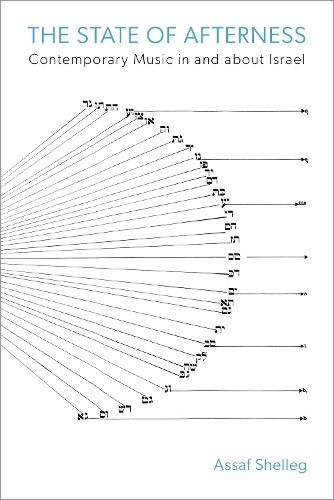Readings Newsletter
Become a Readings Member to make your shopping experience even easier.
Sign in or sign up for free!
You’re not far away from qualifying for FREE standard shipping within Australia
You’ve qualified for FREE standard shipping within Australia
The cart is loading…






The State of Afterness traces the histories and cultural histories of contemporary music in Israel since the 1980s and through the 2020s. With afterness defined as the state of being unconditioned by territorialism while opting for previously unavailable temporalities and ethnographies, Assaf Shelleg studies the compositional approaches that record the attenuation of territorial nationalism, and assembles a network of composers trained in the post-ideological climate of the 1970s and 80s. This network features operas, electronic music, orchestral, and chamber and ensemble works by Chaya Czernowin, Betty Olivero, Luciano Berio, Leon Schidlowsky, Josef Bardanashvili, and Arik Shapira, in addition to Jewish oral musical traditions and novels by David Grossman, A. B. Yehoshua, Yishai Sarid, and Ruby Namdar. While in previous eras the statist subject superseded or subsumed any competing political project, since the 1980s such self-referential acts have been losing their ability to confer homogeneity and project the monologic of national Hebrew culture and its telos. As a result, Shelleg writes, the composers discussed in this book do not form a cohesive group, yet they share constituent cultural and historical sensibilities: they opt for diasporism irrespective of their compositional approaches but refrain from universalizing Jewish diasporas (as did classic Zionism); they display postmodern patrimonies but reject their essentialist qualities; they admonish their country's ethnocracy and democratic facade; they denationalize Holocaust memorialization; and they narrate the failure of territorial nationalism. In this sense, the state of afterness is a drama still etched in our everyday.
$9.00 standard shipping within Australia
FREE standard shipping within Australia for orders over $100.00
Express & International shipping calculated at checkout
The State of Afterness traces the histories and cultural histories of contemporary music in Israel since the 1980s and through the 2020s. With afterness defined as the state of being unconditioned by territorialism while opting for previously unavailable temporalities and ethnographies, Assaf Shelleg studies the compositional approaches that record the attenuation of territorial nationalism, and assembles a network of composers trained in the post-ideological climate of the 1970s and 80s. This network features operas, electronic music, orchestral, and chamber and ensemble works by Chaya Czernowin, Betty Olivero, Luciano Berio, Leon Schidlowsky, Josef Bardanashvili, and Arik Shapira, in addition to Jewish oral musical traditions and novels by David Grossman, A. B. Yehoshua, Yishai Sarid, and Ruby Namdar. While in previous eras the statist subject superseded or subsumed any competing political project, since the 1980s such self-referential acts have been losing their ability to confer homogeneity and project the monologic of national Hebrew culture and its telos. As a result, Shelleg writes, the composers discussed in this book do not form a cohesive group, yet they share constituent cultural and historical sensibilities: they opt for diasporism irrespective of their compositional approaches but refrain from universalizing Jewish diasporas (as did classic Zionism); they display postmodern patrimonies but reject their essentialist qualities; they admonish their country's ethnocracy and democratic facade; they denationalize Holocaust memorialization; and they narrate the failure of territorial nationalism. In this sense, the state of afterness is a drama still etched in our everyday.